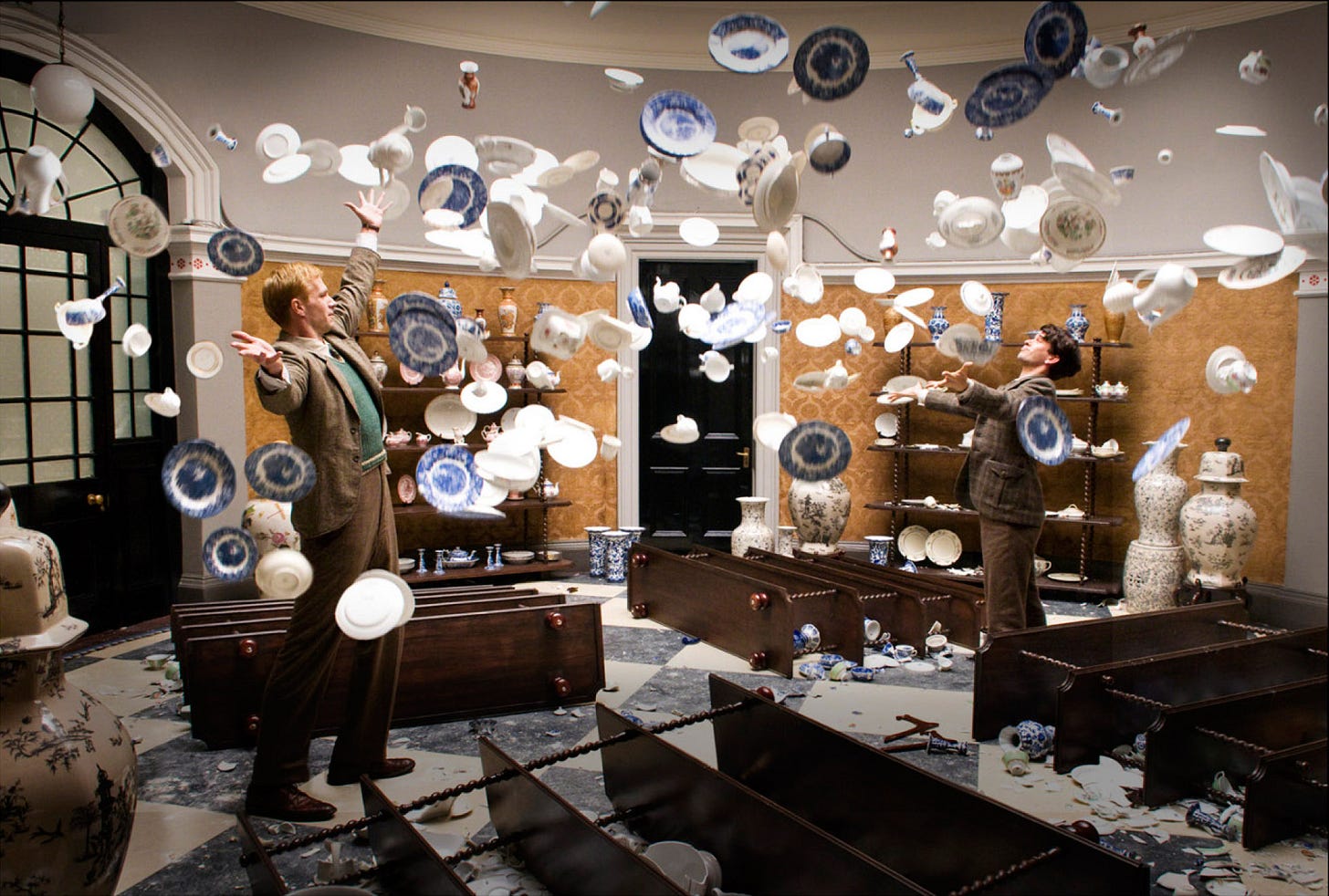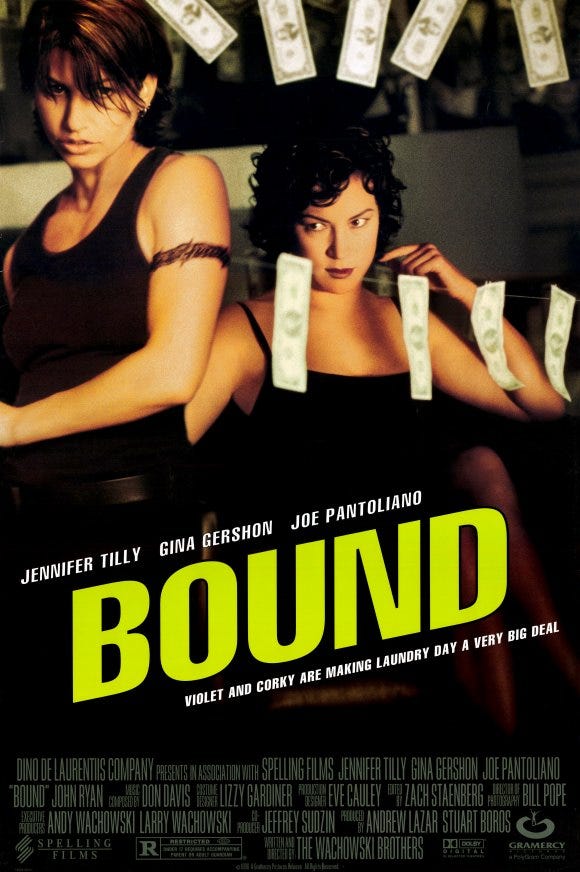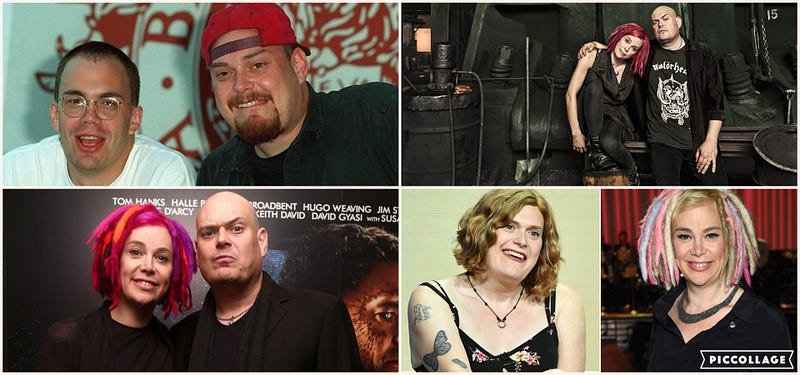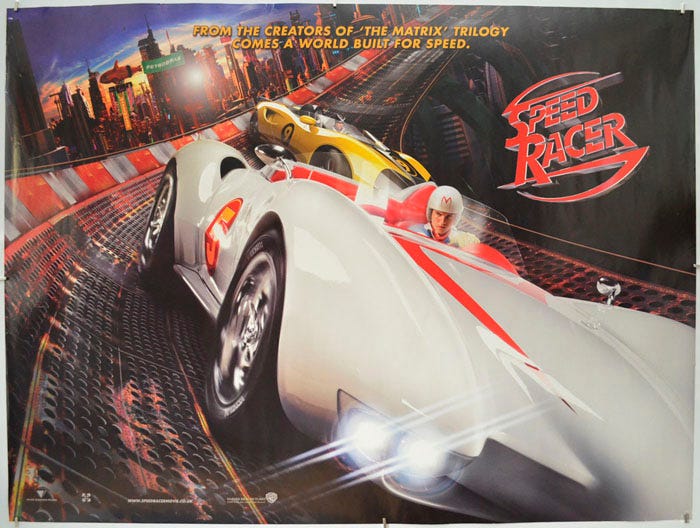
The spoiler free review below was originally penned and published as an immediate reaction piece well over a decade ago and as an addition to a much larger career opus blog article on the cinematic career of The Wachowskis.
The Youtube video that follows immediately below was recorded in late October 2023 and is both one of my better ones (dare I say) as well as one of my more personal efforts. See for yourself if you wish, or skip merrily on to my written spoiler free ramblings and musings.
Peace.
Where do you start with Cloud Atlas without giving away huge spoilers?
My first sincere recommendation would be not to watch any trailers or read any reviews (except this excellent one, obviously) because the less you know beforehand, the more your cinematic and viewing pleasure will be enhanced. I knew exactly zero before I watched for the first time and am now writing this immediately after watching for a second time and I remain completely astonished at what an epic piece of cinema has been created.
A very brief premise would be: Six alternating timelines and narratives that interweave around a central belief in human beings and the human spirit of past and present lives that share a connectivity that whilst apparent on the surface have a much deeper meaning that surfaces as the film progresses. Any more than that would spoil a fantastic plot.
Joined by Tom Tykwer on both Directing and writing duties, both Andy (as named in my original 2012 blog article and now known as Lilly) and Lana Wachowski are credited as both Directors and Writers of Cloud Atlas. A real collaborative effort with both Directors of Photography (Frank Griebe and John Toll) also deserving of huge immediate credit for this monumental achievement in direction as every scene is crystal clear, sharp, focussed and brilliantly lit throughout. Seemingly whatever the situation or setting, the picture is pinpoint, a real joy and one of my first reactions on seeing this film was the sharp, bright resolution.
Film editor Alexander Berner also deserves immediate credit as the editing between timelines is crucial to propelling the story. At nearly three hours in length this is a prerequisite and Berner has excelled magnificently here, seamlessly interweaving the contrasting timelines perfectly, as well as sharp, incisive cuts throughout the individual scenes. The film contains numerous flashbacks/forwards and dream sequences that are again seamlessly interwoven into the narrative, which on second viewing is even more impressive as our characters lives are juxtaposed against each other. This never feels forced or clumsy and is a real highlight of the film. On second viewing you also appreciate the nuances you missed in this regard on first viewing, especially the cutting between timelines and often the characters themselves, that despite being in totally different narratives are cut between each sharing similar experiences and feelings.
Based on the original novel of the same name by David Mitchell (which I have also read twice and heartily recommend), the screenplay is utterly brilliant, as is the clever use of narration from multiple characters and the film is accompanied by a brilliant original musical score. This is also a collaboration, between Reinhold Heil, Johnny Klimek and Tom Tykwer.
The timelines are varied to say the least. Six narrative strands and timelines: 1849, 1936, 1973, 2012, 2144 and a stone age narrative interweave brilliantly throughout the film though all seem very “present day” as you watch. The opening five minutes of the film alone depicts a number of these narrative strands and hints are made as to their connectivity.
Differing from my other film blogs and indeed the other five films from The Wachowskis already appraised (separately), I will not list the character names here for one simple reason and that is plot spoiler avoidance. Suffice to say, as the film quickly progresses through the first Act you will understand why this is the case and again I have no wish to spoil your enjoyment by giving away too many insights into the film. However, there is a stellar, all time cast on display and everyone seemingly bought into the love and affection shown this film as they portray their respective character(s) brilliantly.
Tom Hanks takes star billing alongside Halle Berry, with the brilliant Jim Broadbent again on excellent form. It is to he we look for the comedic relief in the film and there is a multitude of that when Broadbent has screen time, with some of his scenes simply charming and often charmingly funny. Hugo Weaving again returns to a Wachowski film on star form and both Jim Sturgess and Ben Whishaw are stand out performers. Keith David and James D’Arcy are superb, as are veterans Susan Sarandon and Hugh Grant. Taking the top acting honours though is Bae Doona with a sublime performance throughout her character(s). As you will note from the other Wachowskis films reviewed (separately) and hopefully my other film blogs (hint hint!), I usually breakdown both the character and the actors performance when reviewing a film, however here I feel I need to keep this absent and vague to reduce spoilers to a minimum. My earlier comment still stands, that being everyone involved on this film clearly gave their all with each and every performance. It simply shines from the screen from everyone.
Whilst there is violence, some of which is bloody, graphically portrayed and shocking, and a timeline that always disorientates you and never gives you a firm footing for “present day”, the film continues to resonate with me on a number of levels. There are easy comparisons to be made with distinct parts of this film with The Matrix and even Blade Runner, however a comparison can also be made on many levels with Christopher Nolan’s Inception. Whereas that cinematic masterpiece dealt with the reality of dreams, it can be argued that Cloud Atlas is similar but dealing with actual lives, past lives and how they resonate through to future lives as well. It can also be argued that both these films share a real sharp projection, a brightness that catches the eye immediately and is always present. The Matrix and Blade Runner comparisons are more stark but again, to go into detail here would simply spoil the plot but the nods and homages are there.
Simply put, Cloud Atlas is a brilliant film about our inter connectedness across lives, a soul that carries on through other lives, an indomitable human spirit that we all possess but often disregard. Our footprint, and how our actions can cause equal and opposite reactions in lives and indeed realms unseen, and of a spirit in a world or galaxy far beyond our comprehension. A film about love and compassion for others, there’s also a high level of spirituality and religion hinted at. But as with The Matrix and indeed Blade Runner there are also hints at a darker side to humanity and of forces beyond our control. There are images of an automated future, machine driven, and of a compassion vacuum so set against our human moral values. There are also numerous references to historical figures and of events to come that will shape the world we inhabit. Of historical events that have become perceived wisdom through repetition and not through the exploration of the heart and that indeed maybe the actual true heart of the film. Not acceptance of the “way life is” but rather the empowerment to change those perceived wisdom’s, through our spirit and our human traits of compassion and love.
Or maybe I’ve just loved this film a little too much.
Decide for yourselves.
It’s simply astonishing.
“Cloud Atlas” can also be found within my 7 volumes of “Essential Film Reviews Collection” on Amazon with each and every volume free to read should you have a Kindle “Unlimited” package. All 9 of my self-published books can also be read for free on Kindle (but go on, treat yourself to a paperback or hardback version!) and should you watch my short Youtube video linked in the middle of this article you’ll also find links to my Patreon and Buy Me A Coffee and other ways of supporting my work as an independent writer.
"The Essential Film Reviews Collection VOL.1" - link to Amazon
Thanks for reading. I hope this message in a bottle in The Matrix finds you well, prospering, and the right way up in an upside down world.







